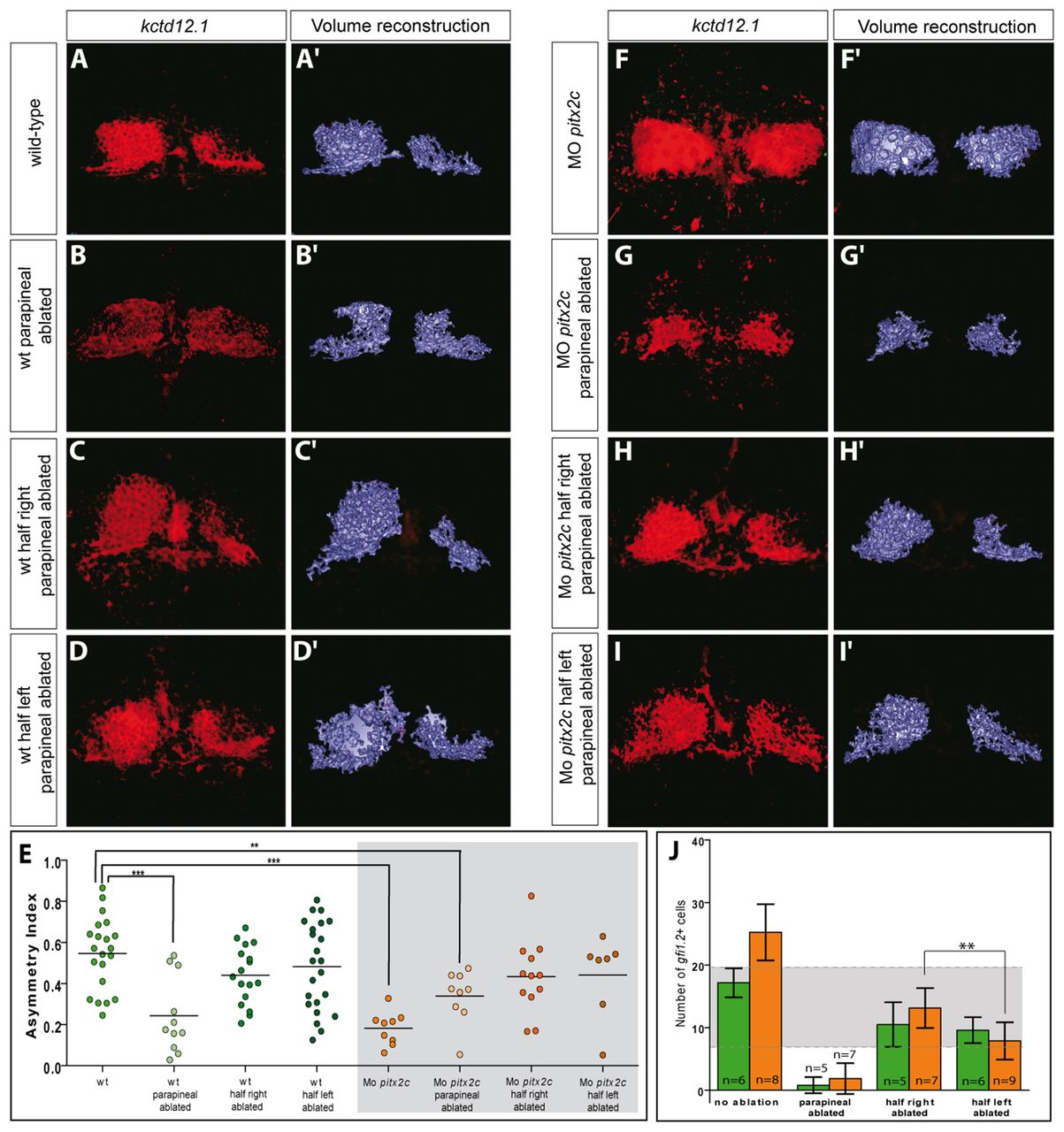Fig. 5
Restricting parapineal cell number rescues habenular asymmetry. (A-D) Single confocal sections of the epithalamus showing in situ hybridisation against kctd12.1 in wild-type embryos at 72 hpf with no ablation (A), complete parapineal ablation (B) or partial ablation of the right (C) or left (D) half of the parapineal anlage. Although complete parapineal ablation induces right isomerisation of kctd12.1 expression, no differences are detected in partial ablations. (A2-D2) 3D renderings of volumes of kctd12.1 expression in the habenulae of the respective confocal acquisition sets. (E) Asymmetry index (AI) with regard to the volume of kctd12.1 expression for individual wild-type (wt) or morphant embryos with complete or partial parapineal ablations. Horizontal black line represents the median AI for each context. Although complete ablation of the parapineal renders the expression of kctd12.1 significantly less asymmetric, partial ablation in pitx2c morphants restores asymmetry; **P<0.01; ***P<0.001 using a t-test. (F-I) Single confocal sections of the epithalamus showing in situ hybridisation against kctd12.1 in pitx2c morphant embryos at 72 hpf with no ablation (F), complete parapineal ablation (G) or partial ablation of the right (H) or left (I) half of the parapineal anlage. Although pitx2c morphants display left isomerisation of kctd12.1 expression and complete parapineal ablation induces right isomerisation, partial ablations return the expression pattern of kctd12.1 to a wild-type pattern. (F2-I2) 3D renderings of volumes of kctd12.1 expression in the habenulae of the respective confocal acquisition sets. (J) Counts of cells expressing gfi1.2 in control (green) and pitx2c morphant (orange) embryos having undergone no ablation, complete parapineal ablation or partial ablation of the right or left half of the parapineal anlage immediately prior to parapineal migration. Partial ablations in pitx2c morphants produce residual parapineals whose cell counts falls within the range sufficient for imposing correct habenular asymmetry in wild-type embryos (highlighted in grey). Although left and right partial ablation in wild-type embryos produces residual parapineals with similar numbers of cells, significantly more parapineal cells remain after partial right than partial left ablations in pitx2c morphants. Error bars represent s.d; **P<0.01 using a t-test. Embryos are viewed dorsally with the anterior towards the top.

